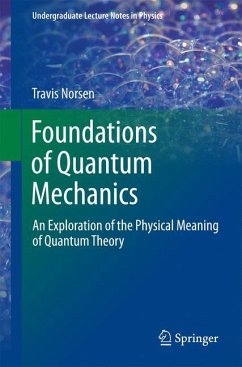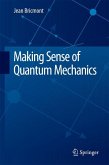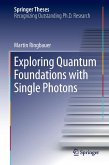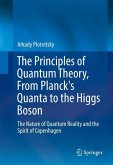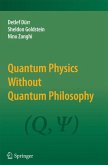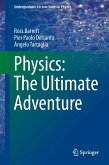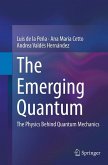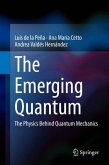Authored by an acclaimed teacher of quantum physics and philosophy, this textbook pays special attention to the aspects that many courses sweep under the carpet. Traditional courses in quantum mechanics teach students how to use the quantum formalism to make calculations. But even the best students - indeed, especially the best students - emerge rather confused about what, exactly, the theory says is going on, physically, in microscopic systems. This supplementary textbook is designed to help such students understand that they are not alone in their confusions (luminaries such as Albert Einstein, Erwin Schroedinger, and John Stewart Bell having shared them), to sharpen their understanding of the most important difficulties associated with interpreting quantum theory in a realistic manner, and to introduce them to the most promising attempts to formulate the theory in a way that is physically clear and coherent.
The text is accessible to students with at least one semester of prior exposure to quantum (or "modern") physics and includes over a hundred engaging end-of-chapter "Projects" that make the book suitable for either a traditional classroom or for self-study.
The text is accessible to students with at least one semester of prior exposure to quantum (or "modern") physics and includes over a hundred engaging end-of-chapter "Projects" that make the book suitable for either a traditional classroom or for self-study.
"Travis Norsen's Foundations of Quantum Mechanics could be the spark that ignites a revolution. ... How adequate is Norsen's exposition? The writing is not just so clear and straightforward that a non-expert can understand it; it is so clear and straightforward that an expert cannot manage to misunderstand it." (Tim Maudlin, American Journal of Physics, Vol. 86 (12), December, 2018)
"The present work is indeed a textbook intended to help the students both to appreciate 'the concerns that people like Einstein, Schrödinger, and Bell have had with traditional formulations', and to have a glimpse of 'the several extant formulations of quantum theory which purport to address at least some of the concerns'." (Nicola Cufaro Petroni, zbMATH 1408.81003, 2019)
"The book is intended as the main text for an undergraduate course on the foundations of quantum physics, but it would also serve well as a supplemental text in a regular undergraduate quantum mechanics course. ... Reading this book should be a priority for all physicists who want to deepen their understanding of their most fundamental theory." (Jean Bricmont, Physics Today, April, 2018)
"I do think this is a book worth buying for anyone interested in the foundations of quantum mechanics. ... Foundations of Quantum Mechanics is an excellent addition to the library of physicists and philosophers working on these problems, and makes a very good supplemental text for related advanced undergraduate courses." (Ian Durham, FQXi Community, fqxi.org, January, 2018)
"It covers all the important issues in that field. ... reading this book should be a priority for every physicist who wants to know what the most fundamental physical theory is all about." (Jean Bricmont, International Journal of Quantum Foundations, ijqf.org, December, 2017)
"The present work is indeed a textbook intended to help the students both to appreciate 'the concerns that people like Einstein, Schrödinger, and Bell have had with traditional formulations', and to have a glimpse of 'the several extant formulations of quantum theory which purport to address at least some of the concerns'." (Nicola Cufaro Petroni, zbMATH 1408.81003, 2019)
"The book is intended as the main text for an undergraduate course on the foundations of quantum physics, but it would also serve well as a supplemental text in a regular undergraduate quantum mechanics course. ... Reading this book should be a priority for all physicists who want to deepen their understanding of their most fundamental theory." (Jean Bricmont, Physics Today, April, 2018)
"I do think this is a book worth buying for anyone interested in the foundations of quantum mechanics. ... Foundations of Quantum Mechanics is an excellent addition to the library of physicists and philosophers working on these problems, and makes a very good supplemental text for related advanced undergraduate courses." (Ian Durham, FQXi Community, fqxi.org, January, 2018)
"It covers all the important issues in that field. ... reading this book should be a priority for every physicist who wants to know what the most fundamental physical theory is all about." (Jean Bricmont, International Journal of Quantum Foundations, ijqf.org, December, 2017)

